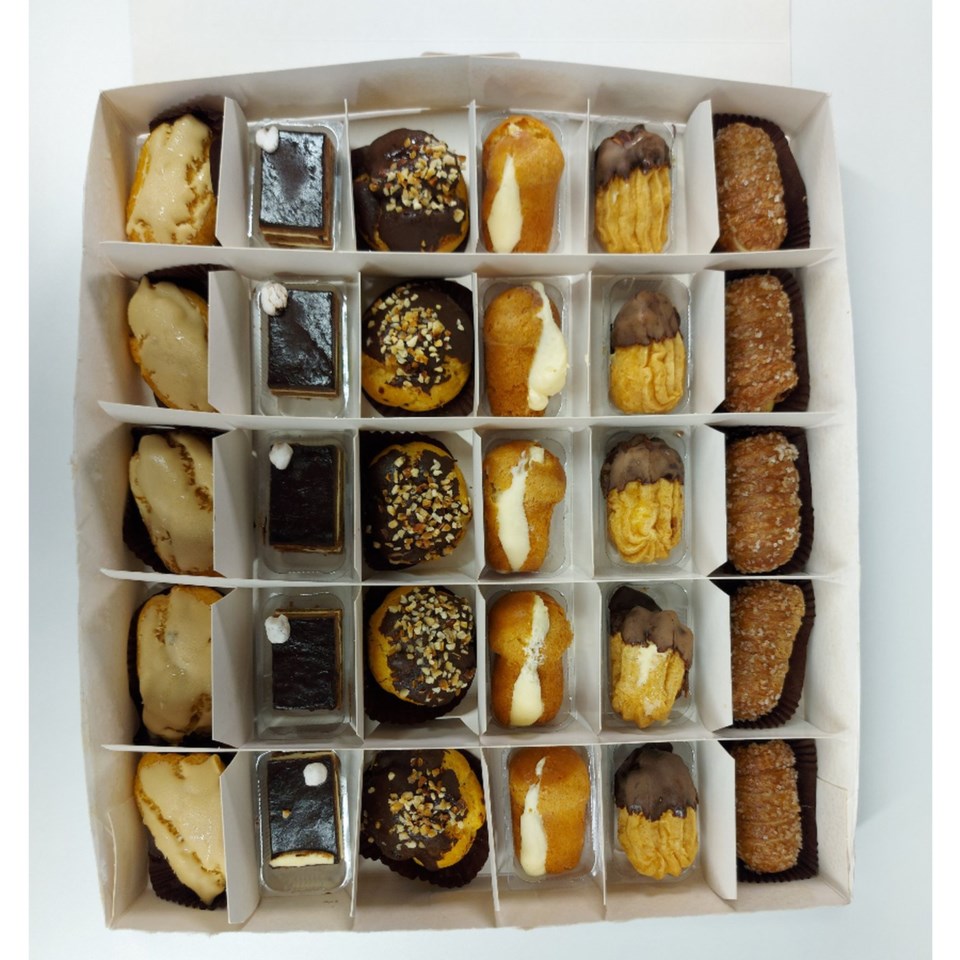The Canadian Food Inspection Agency said it's possible that investigators will be sent to Italy to determine the source of a salmonella outbreak that's sickened at least 61 people in Canada.
On Saturday, the agency recalled an imported brand of Italian mini-pastries distributed at catered events, hospitals and retirement homes in several provinces. Earlier this week the Public Health Agency of Canada told the Canadian Press it's possible more people will become ill, as there’s typically a two-to-seven-week delay before an infected person reports their illness.
A food safety recall specialist at CFIA said deciding whether to send inspectors abroad will be based on a variety of factors, such as the scope of the manufacturer’s overall distribution in Canada, and the Italians' co-operation with sending over production records.
They ultimately want to detect the source of the contamination to determine how it happened, which will include investigating sanitization and food handling protocols, and examining whether other products could have been impacted by the contamination. Sweet Cream produces the pastries in the southwestern Italian town of Bellizzi.
“If there's some huge gaps that are found there, and then it turns out to be a bigger issue, I think it's always a possibility that we may have to go,” Meghan Griffin said.
Canadian officials notified the Italian government Saturday that the Sweet Cream brand of mini pastries is recalled here after products were sold by a Quebec-based importer to customers in Alberta, British Columbia, Quebec, Ontario and potentially other provinces and territories, Griffin said.
Of the 61 people sickened, 33 were in Quebec, 21 in Ontario, four in British Columbia, two in Alberta, one in New Brunswick and none in Nova Scotia as of Monday afternoon.
Joseph Panetta, a sales manager of importations at Laval-based Piu Che Dolci, said production has been paused at the manufacturing facility and they are working on collecting the recalled products from all of their Canadian customers.
Panetta said he’s shared documents with federal inspectors that show the recalled pastries — which include 12 varieties of baked goods, such as berry tarts and lemon cream puffs — were pasteurized.
Griffin said inspectors will be looking at the manufacturer’s pasteurization records to determine if the pastries reached the required internal temperature to be considered safe to consume and if salmonella could have contaminated the baked goods before or after these processes, since salmonella typically comes from an animal source, such as eggs or milk, that’s raw, undercooked or unpasteurized.
“Is the crux either the filling or the pastry that was inadequate? Or were they both adequate and contamination could have occurred afterwards, when they were filling the filling into the pastry?”
Griffin clarified that this recall has no relation to the recall of a variety of Canadian egg brands, also due to salmonella, issued over the weekend, and that the timing of the recalls was purely a coincidence.
Given the fact that the box of pastries that’s been recalled contained so many varieties, inspectors will be looking into whether select pastries within the box were contaminated or if salmonella spoiled all of the pastries in the assortment.
Imported products are required to meet the same food safety standards as foods produced in Canada, including labelling requirements and certificates of origin.
Among the 61 cases reported, the majority were female and 17 people were hospitalized. The age range of those who became ill is between three and 88 years old.
Salmonella can result in severe and potentially deadly infections, particularly for children, pregnant people, the elderly and people with weakened immune systems.
Healthy people may experience short-term symptoms such as fever, headache, vomiting, nausea, cramps and diarrhea.
This report by The Canadian Press was first published Jan. 22, 2025.
Canadian Press health coverage receives support through a partnership with the Canadian Medical Association. CP is solely responsible for this content.
Hannah Alberga, The Canadian Press



